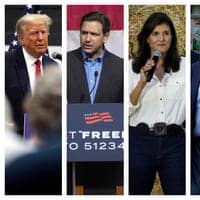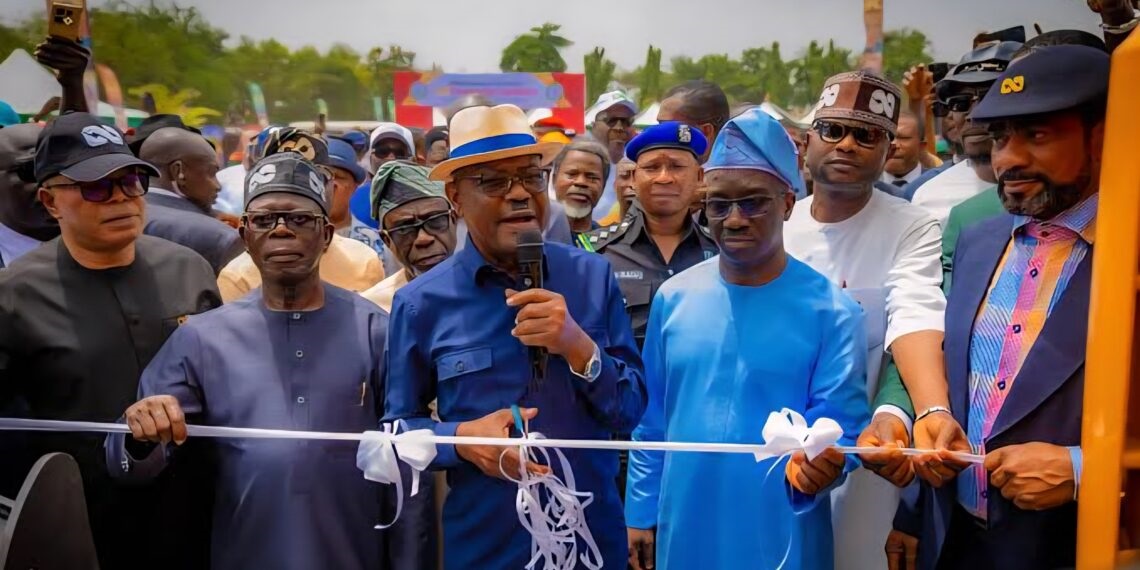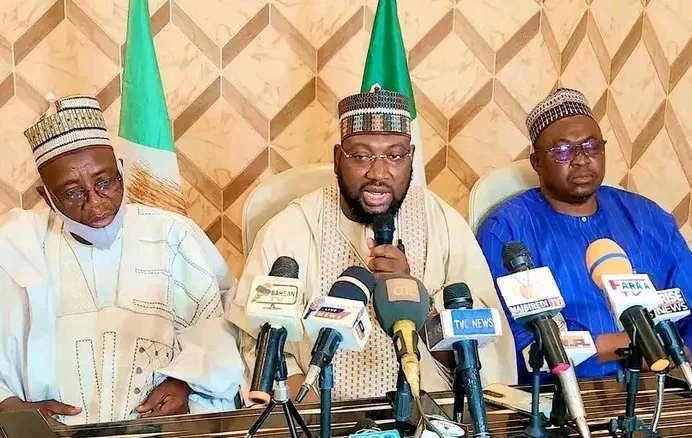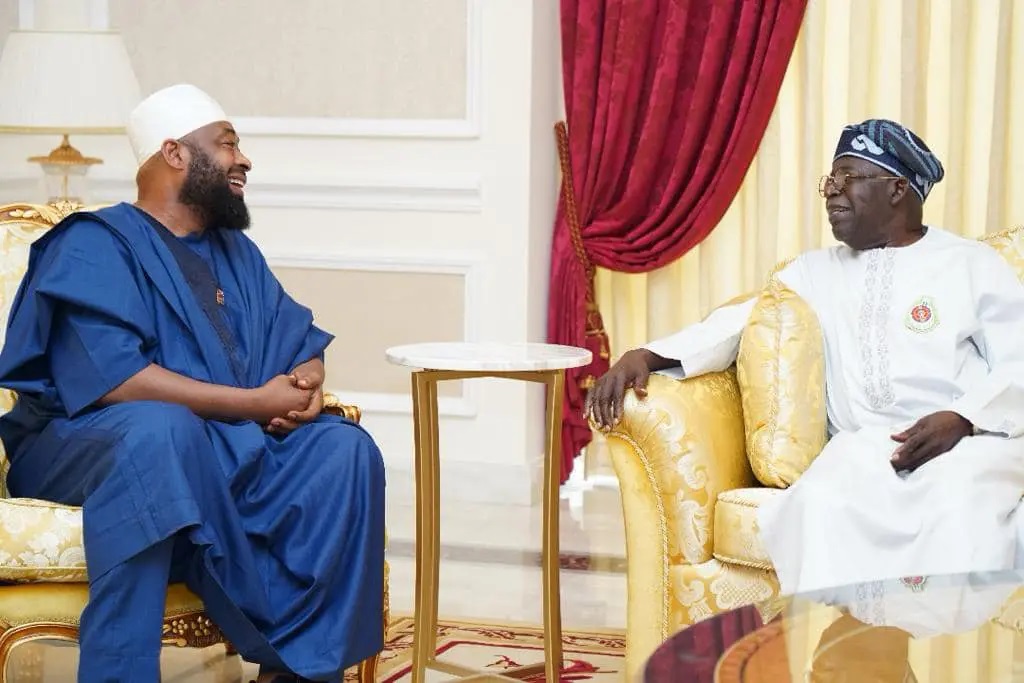The leading 2024 presidential candidates’ stand on the war in Ukraine is now on the front burner, from Donald Trump to Robert F. Kennedy Jr., we present the views and opinions of the asirants on this crucial foreign policy matter.

More than 500 days have passed since Russia initiated a large-scale invasion of Ukraine in February 2022, and the conflict in Ukraine remains a top priority in American foreign policy.
While President Joe Biden engages in discussions with allies at the NATO summit in Vilnius to explore enhanced security guarantees for Ukraine, the 2024 presidential candidates at home are sharing their own perspectives on the war in Ukraine.
In both the Democratic and Republican parties, there is a divide regarding the war in Ukraine and whether the United States should continue providing military aid to the country.
Among the Republicans, most presidential candidates are in favor of maintaining support for Ukraine. However, the two frontrunners in the party express skepticism when it comes to sending additional ammunition and weapons to Ukraine.
Let’s delve into the views of the leading presidential candidates on the war in Ukraine
Former President Donald Trump
As the current frontrunner for the Republican party, Donald Trump frequently suggests that the United States might be providing excessive support to Ukraine.
During a CNN town hall in May, Trump criticized American allies for not contributing enough to aid Ukraine, stating that the U.S. is depleting its own military stockpiles by sending assistance packages to Kyiv.
Furthermore, Trump has repeatedly evaded questions regarding his preference for either Russia or Ukraine to triumph in the war. In an interview with Fox News, he declined to comment on whether he would consider allowing Russia to retain Ukrainian territory as part of a resolution to the conflict.
Instead, Trump frequently asserts that he could end the war within 24 hours if reelected as president, suggesting that Russian President Vladimir Putin would not have invaded Ukraine had he won the 2020 presidential election.
Florida Gov. Ron DeSantis
Ron DeSantis, the governor of Florida, has emerged as another major skeptic among Republican presidential candidates when it comes to American support for the war in Ukraine.
In a statement to Fox News in March, DeSantis referred to the war as a “territorial dispute between Ukraine and Russia,” suggesting that it is not among the United States’ “vital national interests.”
DeSantis emphasized the importance of prioritizing the defense of the American homeland, particularly due to the drug-related deaths and the depletion of weapons stockpiles. He later retracted his earlier comments and labeled Putin a “war criminal,” while maintaining his stance against increased U.S. involvement in the war.
Vivek Ramaswamy
Vivek Ramaswamy, an entrepreneur who has self-funded a significant portion of his 2024 GOP presidential campaign, believes that Ukraine should stand up to its adversaries.
During an interview on Fox News with Piers Morgan, Ramaswamy expressed his belief that the United States has fulfilled its obligations to help Ukraine in the conflict according to the Budapest Memorandum of 1994. However, he emphasized the need to concentrate on advancing American interests at present.
Ramaswamy proposes ending the war through a peace treaty that would establish a freeze on the current lines of control, similar to a Korean War-style armistice agreement. He also advocates for ensuring that Ukraine is not admitted into NATO while demanding that Russia terminate its military partnership with China.
He perceives the China-Russia military alliance as the most significant military threat faced by the United States.

Former New Jersey Gov. Chris Christie
Since entering the 2024 race, former New Jersey Gov. Chris Christie has centered his campaign on criticizing Donald Trump, particularly regarding the war in Ukraine.
Christie rebuked Trump’s claim that he could resolve the conflict within 24 hours, asserting that the only way Trump could achieve that is by yielding to Vladimir Putin’s desires.
While Christie has also criticized President Biden for not offering more support to Ukraine earlier in his term, he advocates for continued U.S. military aid to Ukraine. His objective is to bring an end to the war on terms acceptable to Ukrainians by providing the necessary military hardware for their fight against Russia.
Former South Carolina Gov. Nikki Haley
Nikki Haley, who previously served as the U.S. ambassador to the United Nations during Trump’s presidency, highlights her foreign policy experience as a significant asset in the 2024 race. She frequently expresses her support for Ukraine.
Haley believes that the war in Ukraine transcends the country itself, stating that it is “bigger than Ukraine.” She argues that victory for Ukraine would send powerful messages to other nations, including China, Iran, and North Korea, regarding the United States’ commitment to freedom.
However, Haley believes that American support should be provided through collaboration with allies rather than cash transfers or boots on the ground. She emphasizes the importance of ensuring that Ukraine has the necessary equipment and ammunition to secure victory.
South Carolina Sen. Tim Scott
As a supporter of the war in Ukraine, South Carolina Sen. Tim Scott has been critical of President Biden for failing to articulate America’s national interests in Ukraine.
Scott believes that degrading the Russian military is crucial to protecting the homeland and NATO partners. By diminishing Russia’s military capabilities, Scott argues that the United States can prevent attacks and ensure regional security.
Former Vice President Mike Pence
Former Vice President Mike Pence has distanced himself from Trump on the issue of the war in Ukraine. He favors providing Ukraine with military support to counter Russia, welcoming the Biden administration’s decision to send cluster munitions to Ukraine.
During his recent visit to Kyiv, Pence met with Ukrainian President Volodymyr Zelenskyy, marking the first visit by a 2024 Republican presidential candidate to Ukraine.
Pence asserts that supporting Ukraine is crucial to prevent Russia from potentially attacking a NATO ally, which could provoke a military response from the United States.
Will Hurd
Will Hurd, a former congressman from Texas, advocates for increased support to Ukraine from the U.S. government.
Hurd has become a leading advocate for Ukraine among the Republican presidential contenders, endorsing policies that have not received unanimous support from other pro-Ukraine lawmakers.
Notably, Hurd supports the implementation of a no-fly zone over Ukrainian territory. Although Western military officials have declined to establish such a zone to avoid escalating the conflict, Hurd remains committed to Ukraine reclaiming its entire territory from Russia, including the Crimean Peninsula annexed in 2014.
Former Arkansas Gov. Asa Hutchinson
Former Arkansas Gov. Asa Hutchinson perceives Russia as a significant threat to American national security that demands serious attention.
Hutchinson emphasizes the importance of not backing down from Putin and advocates for tough measures against Russia. While supporting aid for Ukraine, he emphasizes the need to ensure that the funds are used as intended.
According to Hutchinson, America is strongest when standing with allies and those who face oppression. Therefore, supporting Ukraine also means standing up to Putin.
Robert F. Kennedy Jr.
Robert F. Kennedy Jr., who is challenging President Joe Biden in the 2024 Democratic primary election, stands out among fellow Democrats for his willingness to criticize U.S. involvement in the war in Ukraine.
Kennedy characterizes Ukraine as a pawn caught in a proxy war between the United States and Russia. He blames the Biden administration for failing to bring about a peaceful resolution to the conflict and criticizes the decision to send cluster bombs to Ukraine, which were previously labeled a “war crime.”
Kennedy’s stance highlights the need to halt the ceaseless escalation and prioritize peace in Ukraine.
The 2024 presidential candidates’ positions on the war in Ukraine vary across party lines. While some candidates advocate for continued military aid and support for Ukraine, others express skepticism about the level of involvement and emphasize prioritizing American interests. The candidates’ views on this critical foreign policy matter will undoubtedly shape the future direction of U.S. engagement in Ukraine.





